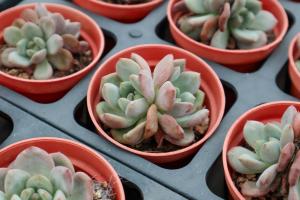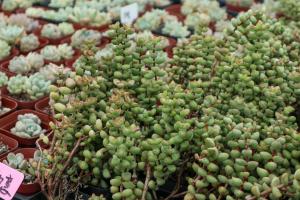Are Copper Pots Safe for Plants?
Using copper pots as planters can add a touch of elegance to your garden. However, there has been a long-standing debate over whether copper is safe to use for planting. While copper is essential to the growth of plants, there are concerns about its toxicity levels when used as a potting material. In this article, we will explore the safety of copper pots for plants and what you need to know before using them.
Why Use Copper Pots?
The use of copper as a material for planters has been in practice for centuries. Copper is known to have antimicrobial properties, which can help reduce bacterial and fungal growth in the soil. Additionally, copper has a high level of durability, making it ideal for outdoor use. It is also aesthetically pleasing and can provide a striking contrast against the greenery of your garden.
Copper Toxicity in Plants
While copper is necessary for healthy plant growth, excessive copper levels can be harmful to plants. Copper toxicity occurs when the concentration of copper in the soil exceeds the plant's tolerance levels. The symptoms of copper toxicity include stunted growth, wilting leaves, and discoloration of the plant. The excess copper can also leach into nearby water sources, which can lead to environmental contamination.
How to Minimize Copper Toxicity
There are several ways to reduce copper toxicity when using copper pots for plants. First, ensure that you are using a high-quality potting mix that is free from contaminants. You can also reduce the amount of copper leached into the soil by coating the inside of the pot with a sealant. This will prevent the soil from coming into direct contact with the copper.
You should also avoid over-fertilizing your plants, as excess fertilizer can make the soil more acidic, which can increase the leaching of copper into the soil. Instead, use a slow-release fertilizer that can provide nutrients to your plants over an extended period.
Alternatives to Copper Pots
If you are still hesitant about using copper pots for your plants, there are several alternatives that you can consider. One option is to use ceramic or clay pots, which are known for their water retention properties. These pots are also less likely to leach harmful chemicals into the soil. Another alternative is to use recycled plastic pots, which are lightweight and have good drainage abilities.
In Conclusion
Overall, copper pots can be a safe and beneficial option for planting, as long as you take the proper precautions to minimize copper toxicity. Ensure that you are using a high-quality potting mix, avoid over-fertilizing, and coat the inside of the pot with a sealant. If you are still unsure, consider alternatives such as clay or recycled plastic pots. With proper care and attention, your copper pots can provide a beautiful and healthy environment for your plants to thrive.

 how many times do yo...
how many times do yo... how many planted tre...
how many planted tre... how many pine trees ...
how many pine trees ... how many pecan trees...
how many pecan trees... how many plants comp...
how many plants comp... how many plants can ...
how many plants can ... how many plants and ...
how many plants and ... how many pepper plan...
how many pepper plan...
































